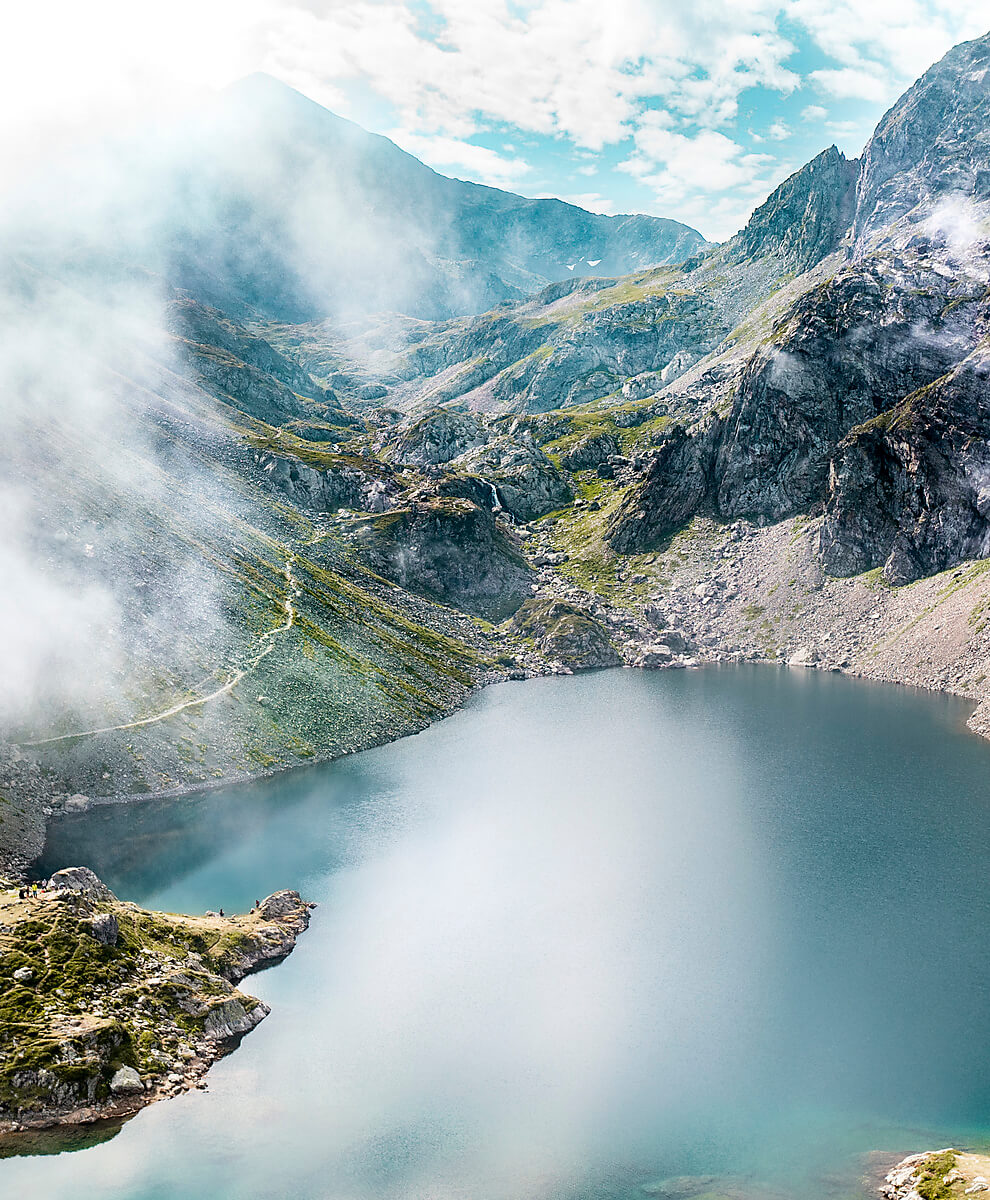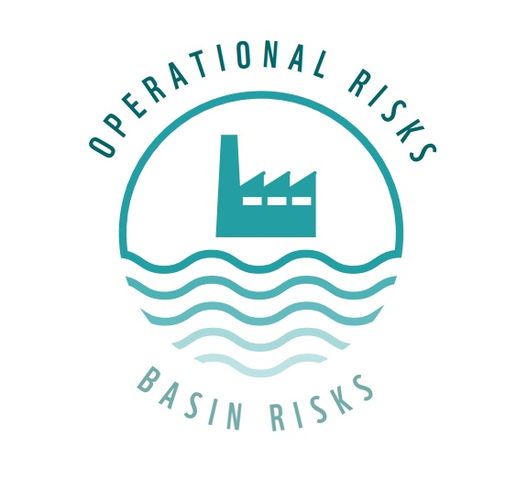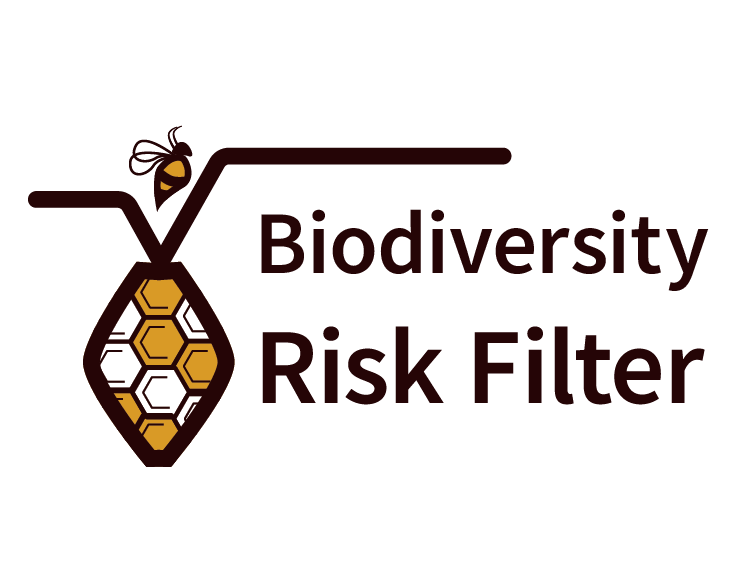WATER RISK FILTER
Assess and respond to your water risks for enhancing resilience
Corporate and portfolio-level screening tool to help companies and investors to prioritise action on what and where it matters the most to address water risks for enhancing business resilience and contributing to a sustainable future

OUR MODULES
The WWF Water Risk Filter is a leading, free online tool that enables companies and investors to Explore, Assess, and Respond to water risks
To learn more about the tool’s modules and how water issues can result in business risk, please read below
Water is fundamental to our societies and economies
All people and economic sectors need water - agriculture, industry and most forms of energy production are not possible without freshwater
Yet, water resources are under increasing pressure from over-abstraction and pollution as well as climate change impacts and the continuing rapid loss of freshwater ecosystems and biodiversity – 83% of freshwater species populations have been lost since 1970, much faster than terrestrial or marine species.

How do business and water relate?
The relationship between business and water is informed by dependencies and impacts:
Dependency on water
Degradation of freshwater resources can create physical risk to businesses that depend on them
Impact on water
Negative impacts on water can create regulatory, reputational, and other risks for business
The WWF Water Risk Filter risk assessment framework accounts for business dependencies and impacts on water through two approaches:
- By applying pre-selected industry weightings to calculate risk scores – see methodology documentation for more details
- By assessing operational risks based on how individual sites depend upon and/or potentially impact water – read more below
Please note that the WWF Water Risk Filter only takes into account DIRECT impacts and dependencies
Understanding basin and operational water risks
Sites across a company’s operations and value chain face different types of water risks due to:
- the nature and conditions of the basins in which the sites operate – referred to as basin water risks
- how the sites depend upon and potentially impact water – referred to as operational water risks
You can also assess how your basin water risks may evolve by 2030 to 2050 under three different climate and socioeconomic-based scenarios.
By assessing both basin and operational risks, companies and investors can get a complete understanding of their potential water risk, and in turn can take contextually appropriate actions to address these identified risks.
For more information, see the tool’s Water Risk Filter Methodology in Data & Methods

Water Risk
The WWF Water Risk Filter tool assess three types of water-related business risk: Physical, Regulatory, and Reputational
All three types of water risks can result in different financial impacts for business (e.g., operational cost increase, loss in revenue, loss of brand value), which ultimately negatively impacts investors’ financial investments

Physical Risk
A company’s operations and value chain may face physical risk if
- located in river basins prone to either water scarcity, flood, low water quality, and/or ecosystems degradation, in turn, negatively impacting water ecosystem services – basin water risks; and
- heavily dependent upon or impacting on water resources for their activities - operational water risk

Regulatory Risk
A company’s operations and value chain may face regulatory risk if
- operating in an unstable, ineffective and poorly implemented regulatory environment – basin water risks; and
- not prepared for regulatory changes or experiencing restrictions and fines due to non-compliance with existing regulations – operational water risks

Reputational Risk
A company may face reputational risk if stakeholders and local communities perceive that it does not conduct business in a sustainable and responsible fashion with respect to water.
A company’s reputational risks are linked to its operational performance (i.e., operational risk) and certain pre-conditions in the river basin (i.e., basin risk) that can make reputational risk more likely to manifest (e.g. media scrutiny, conflict, the conditions and values of freshwater resources and freshwater biodiversity ).
Go to the ASSESS module to analyse your water risks
NEED SOME HELP?
Please make sure to first check our Tutorial page, all FAQs and the Data & Methods. If you still need help, don’t hesitate to contact us.
WANT TO PARTNER WITH WWF?
We at WWF are happy to partner with companies and financial institutions willing to engage in market transformation. If you are interested to work with us, please get in touch.
FAQs
Yes, the WWF Water Risk Filter Team can provide support, ranging from advice on the use of the tool to more tailored expert support for partners.
By partnering with WWF, we can support your organization in better understanding your water risks, provide guidance for your water stewardship strategy and targets and help you implement on-the-ground actions. If you are interested in our tailored expert support, please get in touch.
For basic support, please make sure to first check our tutorial page. If you still need help, don’t hesitate to contact us.
The WWF Water Risk Filter is a leading, free online tool aimed to help companies and investors assess and respond to water-related risks across their operations, value chain and investments.
It is designed to be used as a corporate and portfolio-level screening tool to help prioritize action on what and where it matters the most to address your water risks for enhancing business resilience and contributing to a sustainable future.
With its unique ability to combine state-of-the-art basin data with industry-weightings and operational information, the tool should be used to better understand important aspects of water across the value chain. This knowledge can help to embed water context into corporate strategies and targets, so that organizations will be able to build resilience for their business and investments as well as the basins on which they operate and depend on.
For more information, read the reports Putting water strategy into context and Contextual water targets available on our Risk Reports page.
With its first version launched in 2012, the WWF Water Risk Filter has become a leading and trusted tool used worldwide and from a broad range of sectors - including food and beverage, textile, retail, mining, manufacturing, and finance.
To read examples of how companies and investors use the WWF Risk Filter Suite, please visit our Case Studies page.
To assess your water risks and opportunities, you will need to register and create an account. Once you created an account, you will be able to access the Assess module of the tool to upload your data, save it and come back to it at any point - only you have access to this account.
However, you do not need to create an account to access the Explore module of the tool, which contains an array of water risk maps and resources to help you get started.
Please note that the Respond module is currently under development. Once live, only registered users with an account will be able to access the Respond module to receive corporate-level recommendations based on their unique water risks.
The former "Water Scarcity" risk category has been divided into two distinct risk categories to better differentiate between factors associated with water use and those linked to climate patterns. Water use, which includes human-driven components, is now captured under the new "Water Availability" risk category, while climatic patterns are represented by the "Drought" risk category.
For reporting purposes, we recommend adopting "Water Availability" as the primary risk category. Additionally, we suggest using the "Drought" category as supplementary information to help in interpreting results and prioritizing sites for action. For instance, if a site has a medium or high Water Availability risk, these risks may be exacerbated if it also has a high Drought risk, indicating a need for prioritization and action.
Image: © WWF Deutschland






